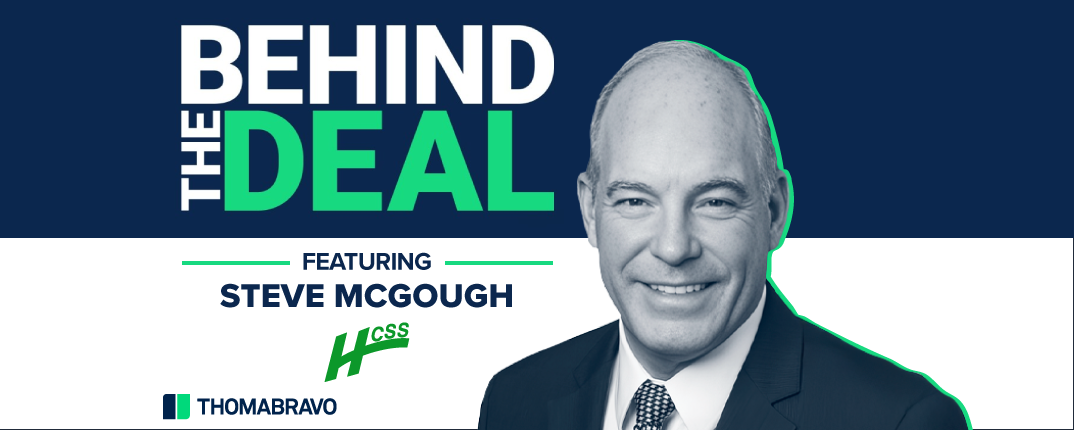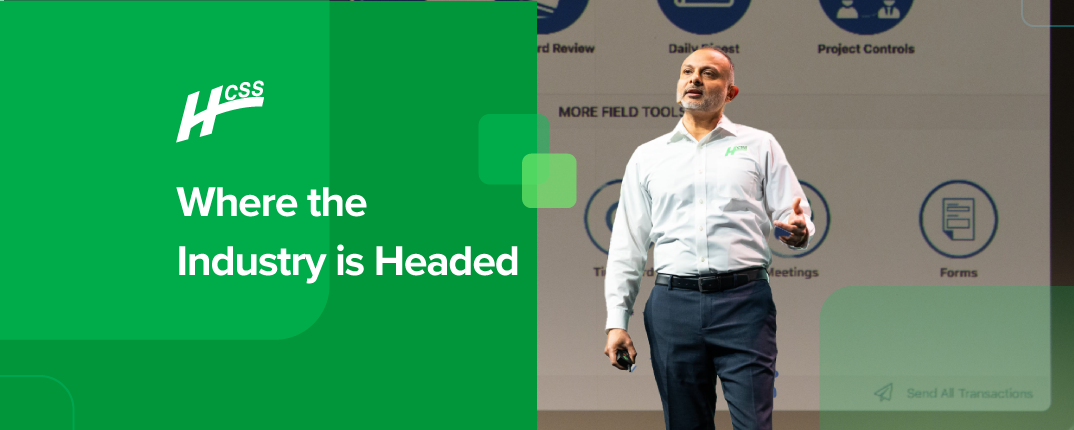In an illuminating conversation between Thoma Bravo executives and HCSS President and CEO Steve McGough, listeners hear firsthand how one of the largest software-focused investors in the world partners with the industry leader in construction software.
Here are some key highlights from the latest episode of the Behind the Deal podcast.
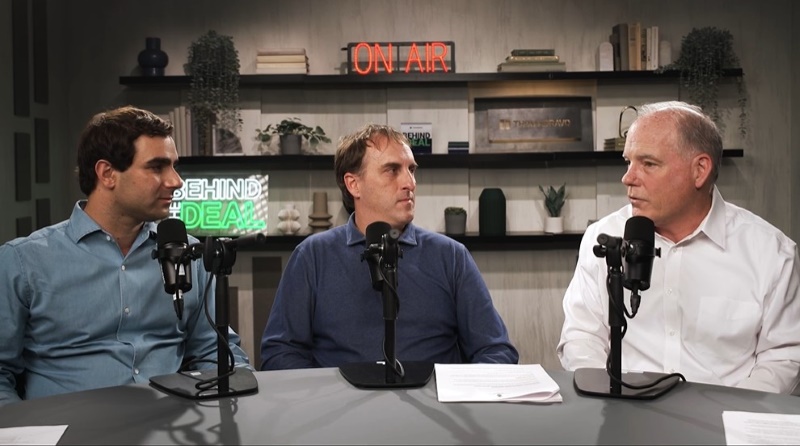
Acquiring a Pioneer in Construction
As Thoma Bravo's Founder and Managing Partner Orlando Bravo notes, HCSS – based in Sugar Land, Texas – established itself as one of the world’s most successful heavy civil construction software companies. HCSS’s products are instrumental in major infrastructure projects across North America, including the Tappan Zee Bridge in New York and the F1 Track in Las Vegas.
Numerous private equity firms had long eyed acquiring HCSS, and one of those earliest bidders was Thoma Bravo. Principal George Jaber recalls a “janky little spreadsheet” they had put together that revealed HCSS’s true potential. “I put in all the numbers, added ‘em all up, and I looked at it, and I thought, ‘We just found gold.’”
This moment of discovery would lead to a significant investment from Thoma Bravo, with one critical caveat: purposeful plans must be implemented to ensure HCSS retains the cultural magic that forged the wildly successful company in the first place.
The Leadership Transition
In the podcast, Steve McGough shared this journey to becoming CEO. He joined HCSS in 2005 through an unconventional path: sending unsolicited resumes to Houston’s top 20 software companies. With three offers in hand, he was most attracted to HCSS’s intense focus on solving customer problems.
Seasoned HCSS users know that Mike Rydin was a brilliant founder obsessed with the customer. When he retired, McGough was his second in command for 15 years, having served as both COO and CFO. Maintaining continuity and the company’s tradition of promoting from within, McGough was the natural choice for the role as the second CEO in company history.
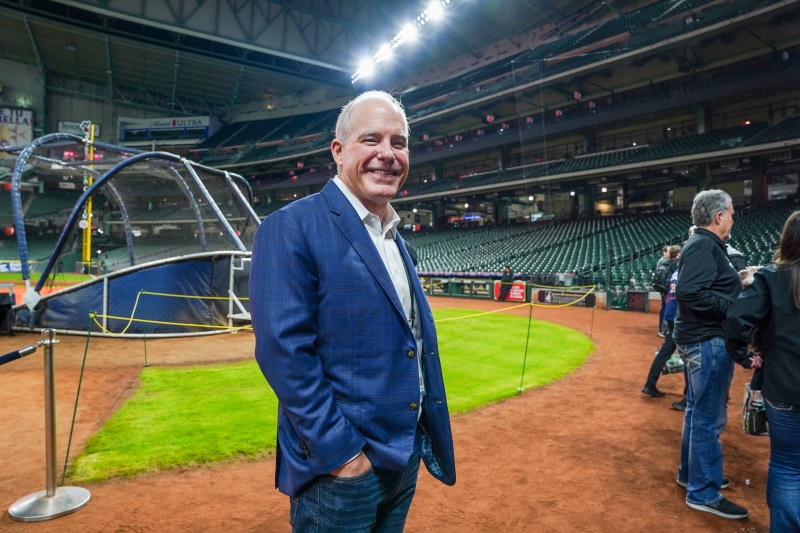
The Seven Core Values
One of the most insightful moments of the podcast came when McGough shared his leadership philosophy at HCSS, breaking it down into seven core values. He listed them effortlessly:
- Passion
- Grit
- Purpose
- Consistency
- Empathy
- Kindness
- Humility
“Just to touch on some of those,” McGough explained, “when I'm talking to someone, it doesn't really matter if it’s in business or in their personal life, if they don't get passionate or light up about something, I assume they’re going to bring that same level of enthusiasm to the business the next day. From a grit or perseverance standpoint, I tend to work well with people that have been socked in the nose, gone through some adversity in their life, and came out the other side a better individual.”
McGough proceeded to discuss “purpose,” how if you're going to lead, you should know why. “From a consistency standpoint, it’s probably not what you think. It’s more along the lines of if you can stick with something. If I go to the gym and work out for two weeks, I know I’m not going to see any results, but if I go six months, I’m surely going to see some positive outcomes.”
Regarding the value of “empathy,” McGough continued: “This is important to me because if you’re a leader and you’re going to work with someone over 10 or 20 years of their career, people are at different stages in their life. You might have a young parent that needs more flexibility in their hours. Can you work with those types of people to make sure that you’ve got a great employee for years to come? [It’s] not a one-size-fits-all.”
Kindness and humility were the final two values, just as important as the rest. “I think we could all come together a lot more from that,” he said. “And quite frankly, some of the smartest people that I personally know are also some of the kindest. And then, from a humility standpoint, it’s another big one. Does it always have to be your idea? Do you have to be the hook and bull in the room, or can you allow the people who work for you to come up with a solution that actually works for the business? Those are the keys for me.”
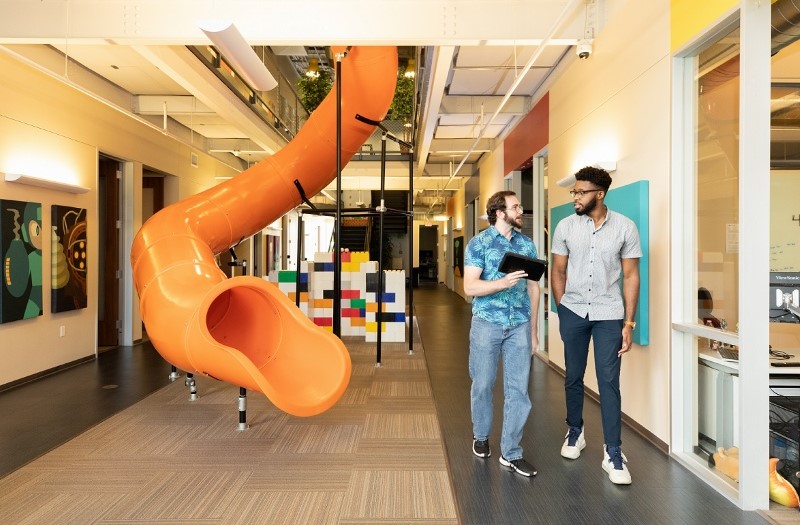
Fostering a Customer-Centric Culture & Vision for the Future
McGough discussed how one of HCSS’s most distinctive features is its commitment to customer care, demonstrated through a “three rings or less” policy for customer support. Available 24 hours a day, this approach ensures every customer receives prompt assistance whenever needed, providing dedicated help until each issue is resolved. This level of support reflects the company’s deep focus on customer satisfaction.
Additionally, the HCSS headquarters embodies the company’s unique culture, featuring a gym, basketball court, running track, dog kennels, and even a circular slide connecting floors. These amenities contribute to a work environment that encourages creativity, productivity, and well-being, best described as “a campus where employees want to come interact with their coworkers.”
Looking ahead, McGough emphasizes continuing to stay true to the company’s roots while embracing innovation. “I would never want us to lose sight of what built the business to where it is, and that’s being a very customer-focused company with innovative products,” he commented. “I believe that if we stay customer-focused, continue to provide world-class support, and innovate in and around our products, we will remain the dominant player with a great brand and great reputation for decades to come.”
Every day, the partnership between Thoma Bravo and HCSS stands as a testament to honoring a beloved company’s culture while accelerating future growth to new heights.
To listen to this episode of Thoma Bravo's Behind the Deal podcast, click here to listen wherever you enjoy podcasts or watch the video on YouTube.
